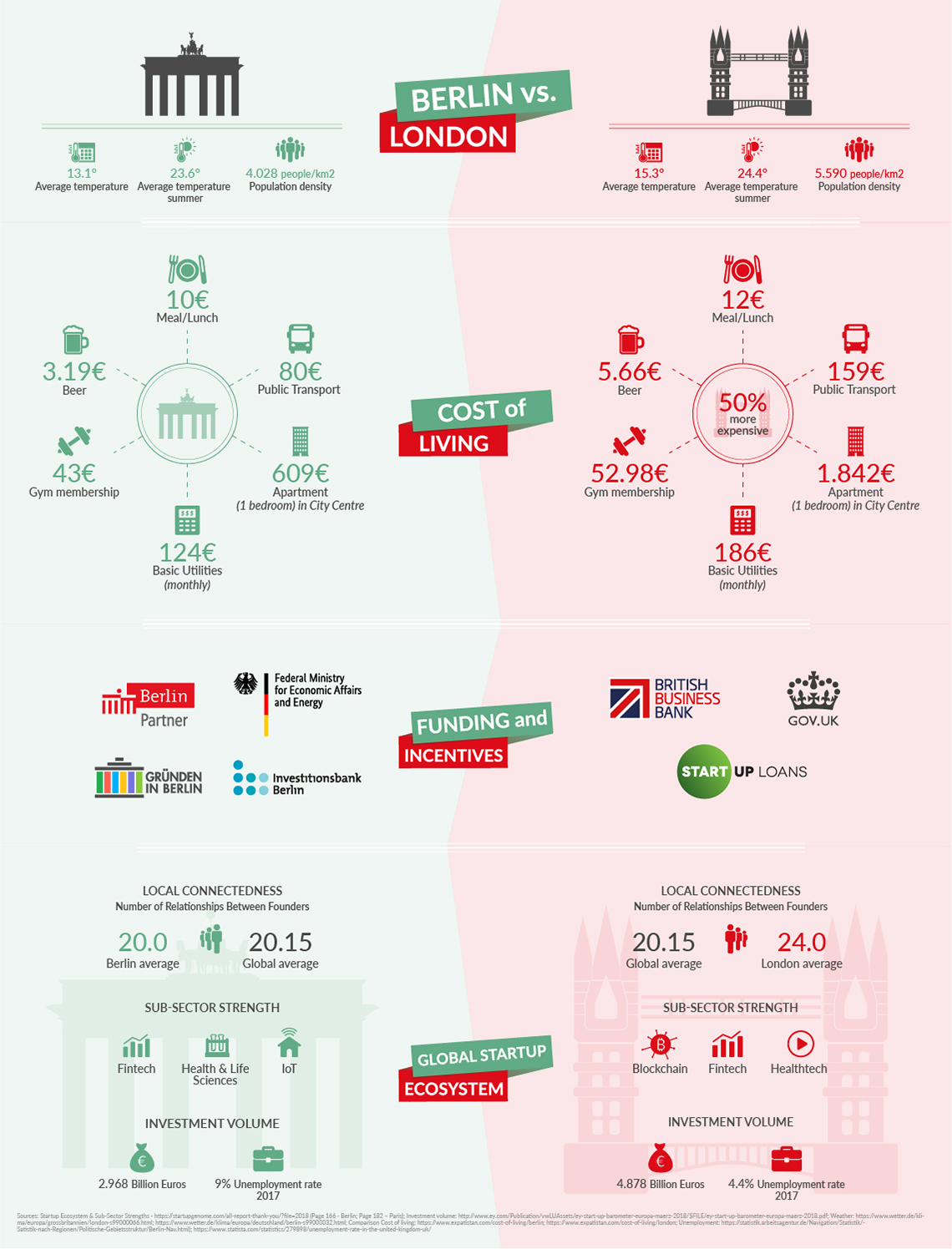Berlin vs. London: Comparing two European tech-hubs
Young creators, entrepreneurs and founders are flocking to the German capital to be part of a healthy growing ecosystem. National businesses, but also British companies, such as Penta, Swiss Bank and Samsung Next Europe have started to discover the great potential and are relocating to Berlin in preparation of the upcoming changes within the EU.
Benefits that stand out
Berlin’s startup attraction relies on a mix of affordable living conditions, the overall vibrant and creative culture, a diverse pool of talent and expertise, as well as attractive funding programmes. Studies like EY Startup Barometer or Startup Genome prove that Berlin has secured its standing as a startup hub among the top three European capitals. It is catching up fast in financial aspects, such as rounds of financing or investment volume and has the potential to take first place in the next years, fuelled by the Brexit movement.

As a business owner saving money is always a priority and Berlin is THE city for startups to operate longer on a tight budget. The costs of living remain well below the average compared to other European capitals, while the quality of living is high. Renting an apartment or using public transport for example, are around 50% cheaper in Berlin, compared to London. For more comparisons of relevant figures see the infographic above.
Londoners such as founder Tom, who moved to Berlin in 2016 also values another essential feature, that distinguishes the Berlin lifestyle: “I find that people have a much healthier attitude towards work-life balance [in Berlin] – London is work, work, work. “ Likewise, Designer Temi, who relocated 3 years ago, notices that Berlin is more laid-back and “doesn’t have the same type of business intensity that London can have.”
Support from the city and it’s government
Various initiatives are offering services for tech businesses, promoting a smooth market entrance. The international city network Start Alliance, for example, builds connections to local networks and can even provide free office space for London-based startups applying to their program. There are also plenty of networking events and conferences that take place throughout the year.
Additionally, young businesses and the people behind them also find support in important personal aspects. Just this summer, Berlin was the first of 16 German states to abolish the fees for child care (kindergarten). While this step doesn’t solve all challenges young families face, it does help ease financial worries and contributes to a good work-life balance.
Berlin meets all the criteria to become the next “European startup capital”
- Affordable living and working – relatively low rents for apartments and office space
- Open society – networking is made easy at after-hours or local business events and people from all nations are being welcomed
- Supportive ecosystem – active support that helps to create a healthy lifestyle
However, while it is more relaxed, Berlin can be called boring by no means. Various parks, lakes and social outdoor or indoor events all over the city offer plenty adventure opportunities or to recharge your batteries after a busy workday. Around 80% of Germans speak English so you’ll have no trouble of finding your way around. And when homesickness hits after all, Brits will find that Berlin also has a distinctive British side to it, that awaits to be discovered.
Text: Uhura Creative Media, 05. October 2018

